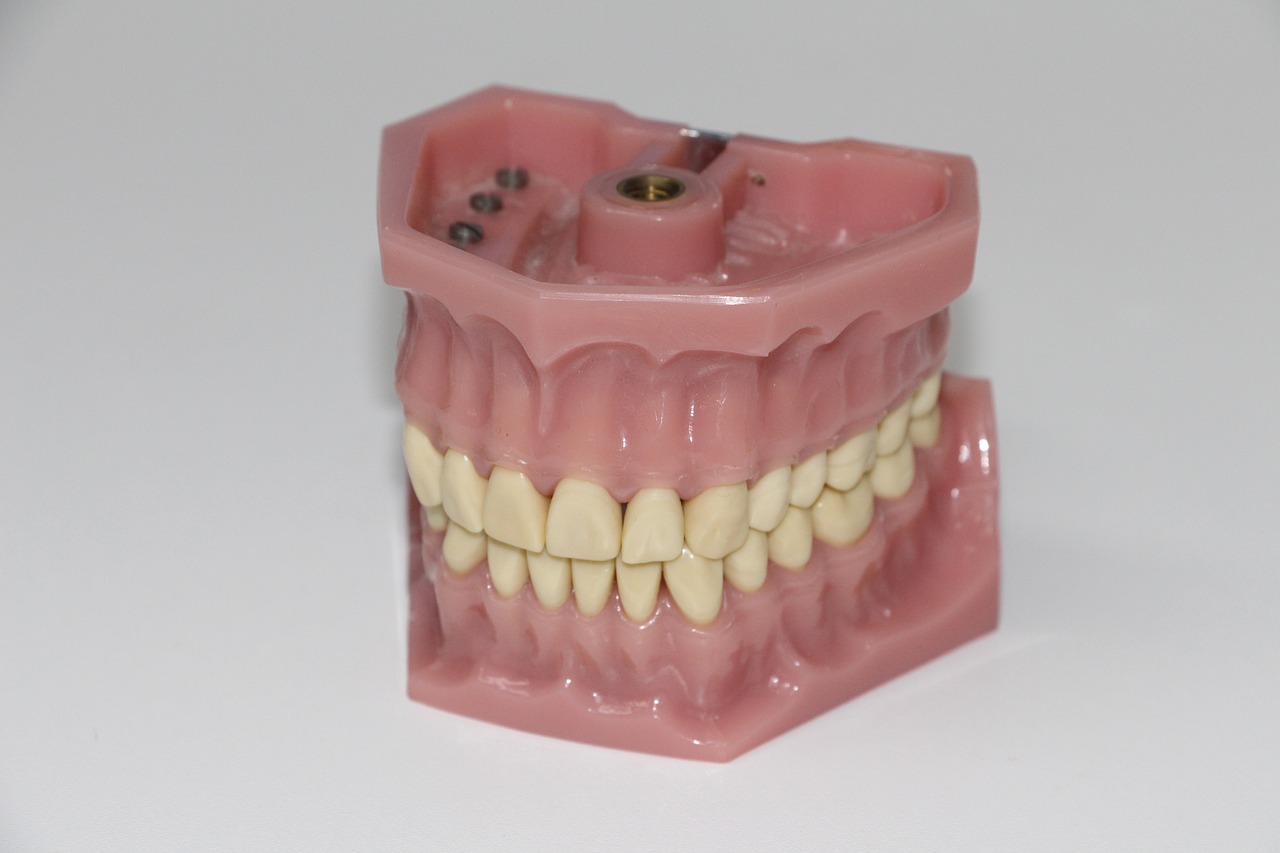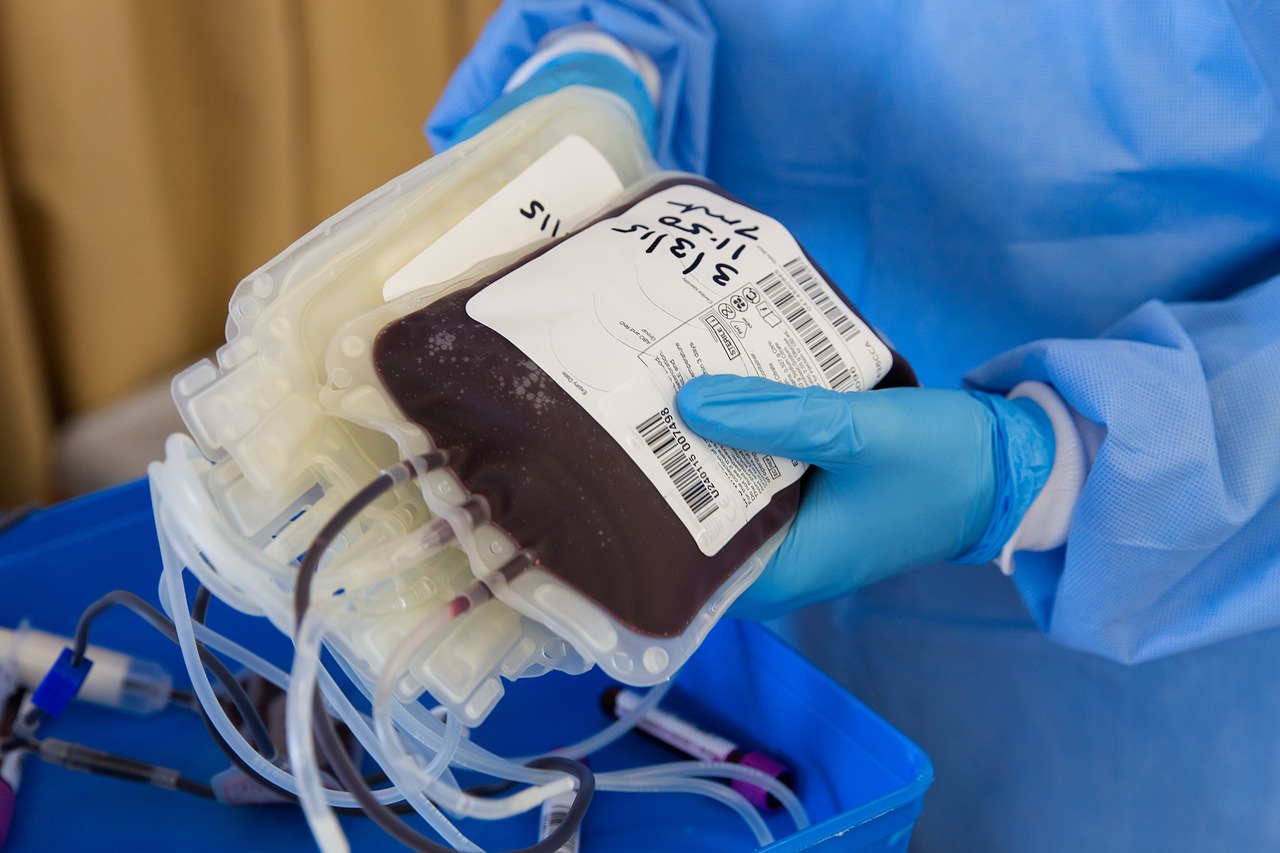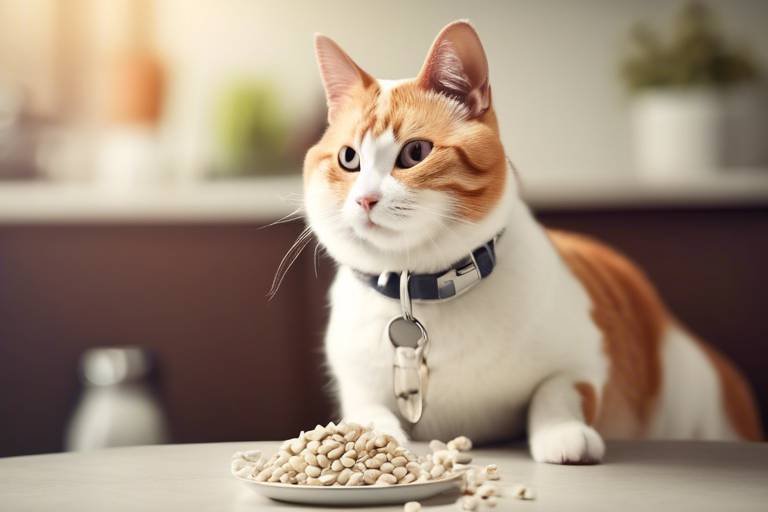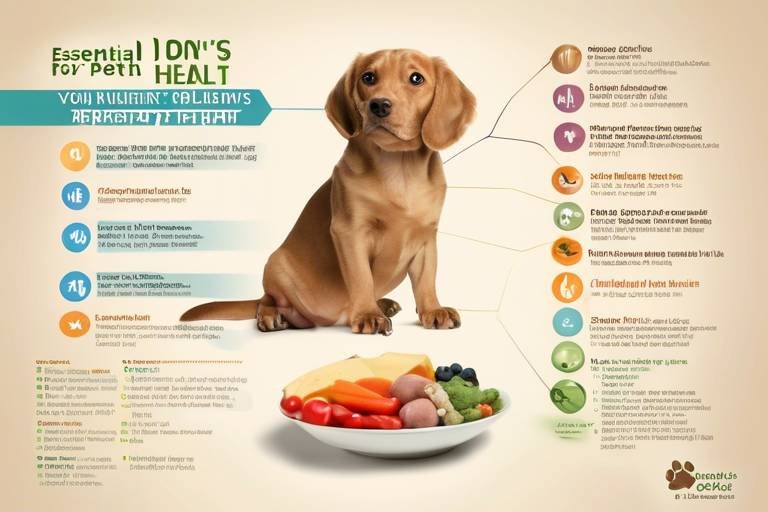Common Health Issues in Pets and Their Symptoms
As pet owners, we all want the best for our furry companions. However, just like humans, pets can face a variety of health issues that can affect their quality of life. Understanding these common health problems and their symptoms is crucial for early detection and intervention. After all, a happy pet is a healthy pet! By being vigilant and observant, you can ensure your beloved animal receives the care it needs when it needs it.
Some of the most prevalent health issues in pets include allergies, obesity, dental problems, and gastrointestinal disorders. Each of these conditions can manifest in unique ways, and recognizing the signs early can make all the difference. For instance, allergies might cause your pet to scratch excessively or sneeze, while obesity can lead to lethargy and difficulty in movement. By being aware of these symptoms, you can take proactive steps to keep your pet healthy and happy.
In this article, we will delve deeper into these common health issues, exploring their symptoms and potential treatments. We'll also provide useful tips on how to maintain your pet's overall well-being. So, let's embark on this journey to better understand the health of our furry friends!
Allergies are not just a human ailment; our pets can suffer from them too! They can be triggered by various factors, including food, pollen, dust mites, and even fleas. Recognizing the signs of allergies in pets is essential for managing their discomfort. Common symptoms include:
- Itching and Scratching: If your pet is constantly scratching or biting at their skin, it could be a sign of an allergic reaction.
- Sneezing and Coughing: Just like us, pets can sneeze and cough when exposed to allergens.
- Digestive Issues: Allergies can also manifest as vomiting or diarrhea, particularly in response to certain foods.
By identifying these symptoms early on, you can consult with your veterinarian to determine the cause of the allergies and explore potential treatments, such as antihistamines or dietary changes.
Obesity is a growing concern among pets, and it's a serious issue that can lead to a host of health problems. Just like in humans, excess weight can put a strain on your pet's body, leading to conditions such as diabetes, joint issues, and heart disease. Identifying symptoms of obesity is crucial, and they often include:
- Lethargy: If your pet seems less active than usual, it could be a sign of excess weight.
- Difficulty in Movement: Watch for signs that your pet struggles to jump or play.
Understanding the causes of obesity can help you create a tailored approach to weight management. Factors such as overfeeding, lack of exercise, and even genetic predispositions play a significant role.
Several factors contribute to pet obesity, including:
- Overfeeding: Many pet owners unknowingly overfeed their pets, leading to weight gain.
- Lack of Exercise: Pets need regular physical activity to maintain a healthy weight.
- Genetic Predispositions: Some pets may be genetically predisposed to gain weight more easily than others.
By recognizing these causes, you can implement effective strategies to help your pet lose weight and maintain a healthy lifestyle.
The type and quantity of food your pet consumes directly impact their weight. Educating yourself about balanced diets can help prevent obesity and promote overall health. Consider consulting with your veterinarian to determine the best diet for your pet's specific needs.
Regular physical activity is vital for maintaining a healthy weight in pets. Encouraging playtime and daily walks can significantly improve your pet's fitness and well-being. Just like us, pets need to burn off energy to stay healthy!
Obesity can lead to numerous health issues in pets, including:
- Diabetes: Excess weight can lead to insulin resistance.
- Joint Problems: Carrying extra weight puts additional strain on joints.
- Heart Disease: Obesity increases the risk of cardiovascular issues.
Recognizing these risks underscores the importance of maintaining a healthy weight for your pet's long-term health.
Dental issues are incredibly common among pets and can lead to severe health complications if left untreated. Symptoms such as bad breath, difficulty eating, and swollen gums should prompt immediate veterinary care. Just like humans, pets need regular dental check-ups to maintain their oral health.
Regular dental check-ups and at-home care can significantly reduce the risk of dental problems in pets. Educating pet owners on proper dental hygiene practices, such as brushing their pet's teeth and providing dental chews, is essential for long-term oral health.
Recognizing signs of dental disease, such as:
- Swollen Gums: Inflamed gums can indicate periodontal disease.
- Tooth Loss: Losing teeth is a clear sign that dental health is compromised.
Being aware of these symptoms can lead to early intervention and better dental health for your pet.
Gastrointestinal problems are not uncommon in pets and can manifest in various ways, including vomiting, diarrhea, or loss of appetite. Identifying these symptoms promptly can assist in timely treatment, preventing further complications.
Several gastrointestinal disorders can affect pets, such as:
- Pancreatitis: Inflammation of the pancreas can cause severe abdominal pain.
- Inflammatory Bowel Disease: A chronic condition that can lead to ongoing digestive issues.
Understanding these conditions can help you recognize symptoms and seek appropriate veterinary care.
The diet plays a significant role in your pet's gastrointestinal health. Discussing the importance of a balanced diet with your veterinarian can help prevent many digestive issues in pets.
Q: How can I tell if my pet is overweight?
A: Look for signs like difficulty in movement, lethargy, and an inability to feel your pet's ribs easily. A visit to the vet can provide a more accurate assessment.
Q: What should I do if I suspect my pet has allergies?
A: Consult your veterinarian to discuss symptoms and potential allergy testing or treatment options.
Q: How often should I take my pet for dental check-ups?
A: It's recommended to have your pet's teeth checked at least once a year, but some pets may need more frequent visits based on their dental health.
Q: What are the best ways to prevent obesity in pets?
A: Maintain a balanced diet, control portion sizes, and ensure regular exercise through play and walks.

Signs of Allergies in Pets
When it comes to our furry friends, allergies can often be an unseen foe, lurking beneath the surface and causing discomfort that may go unnoticed at first. Just like humans, pets can suffer from a variety of allergies, which can manifest in several ways. If your pet is suddenly scratching more than usual, sneezing, or experiencing digestive issues, it might be time to investigate further. Allergies can stem from environmental factors such as pollen, dust mites, or even certain foods, and recognizing the symptoms early can be crucial in managing their discomfort.
One of the most common signs of allergies in pets is persistent itching. If you notice your dog or cat constantly scratching or biting at their skin, it could be a sign of an allergic reaction. This itching can lead to skin infections, which can complicate the issue further. Another telltale sign is sneezing, especially if your pet seems to do it frequently or has a runny nose. Just like us, pets can experience nasal irritations due to allergens in their environment.
Moreover, keep an eye out for changes in your pet's behavior. For instance, if they seem more lethargic than usual or are avoiding their favorite activities, it might be due to discomfort caused by allergies. Additionally, digestive issues such as vomiting or diarrhea can also signal food allergies. If you suspect your pet is dealing with allergies, it’s essential to consult with a veterinarian for proper diagnosis and treatment.
To better understand the signs of allergies in pets, here’s a quick reference table:
| Symptom | Description |
|---|---|
| Itching | Frequent scratching or biting at skin, leading to irritation or infections. |
| Sneezing | Repeated sneezing or nasal discharge, indicating respiratory allergies. |
| Digestive Issues | Vomiting or diarrhea that may indicate food allergies. |
| Behavior Changes | Increased lethargy or avoidance of activities due to discomfort. |
In conclusion, being aware of these signs can help you act swiftly to address any allergies your pet may be experiencing. Remember, early detection is key to ensuring your beloved companion remains happy and healthy. If you notice any of these symptoms, don’t hesitate to reach out to your veterinarian. They can provide guidance on how to manage your pet’s allergies effectively, ensuring they live a comfortable and fulfilling life.
Q: How can I tell if my pet has allergies?
A: Look for symptoms such as itching, sneezing, vomiting, or changes in behavior. If you notice any of these signs, consult your veterinarian.
Q: What are common allergens for pets?
A: Pets can be allergic to a variety of things, including pollen, dust mites, certain foods, and even flea bites.
Q: What should I do if I suspect my pet has allergies?
A: Schedule an appointment with your veterinarian for a proper diagnosis and treatment plan.
Q: Can allergies in pets be treated?
A: Yes, allergies can often be managed with medication, dietary changes, or environmental adjustments as recommended by your veterinarian.

Understanding Obesity in Pets
Obesity in pets is not just a cosmetic issue; it’s a significant health concern that can lead to a variety of serious conditions. Imagine your pet struggling to keep up during playtime or panting heavily after a short walk. These are not just signs of aging; they could be indicators of obesity. As pet owners, it's our responsibility to recognize these signs early and take action. The prevalence of obesity in pets has been rising, and it’s essential to understand the underlying causes, symptoms, and risks associated with this condition.
One of the most alarming aspects of pet obesity is that it often goes unnoticed until serious health problems arise. Many pet owners may not even realize their furry friends are overweight. Just like humans, pets can suffer from a range of health issues due to excess weight, including diabetes, heart disease, and joint problems. In fact, studies have shown that pets who are overweight are at a higher risk of developing these conditions, which can significantly affect their quality of life.
Identifying the symptoms of obesity is crucial for early intervention. Some common signs include:
- Lethargy: Your pet may seem less energetic and less interested in play.
- Difficulty in Movement: Watch for signs of stiffness or reluctance to jump or climb stairs.
- Visible Fat Deposits: Check for fat pads around the abdomen, chest, and neck.
- Shortness of Breath: Overweight pets may pant excessively after minimal exertion.
Understanding the causes of obesity is equally important. Various factors contribute to this growing issue:
| Cause | Description |
|---|---|
| Overfeeding | Feeding pets more than the recommended amount or providing too many treats. |
| Lack of Exercise | Insufficient physical activity due to lifestyle or health issues. |
| Genetic Predispositions | Some breeds are more prone to obesity than others. |
By recognizing these factors, pet owners can implement effective weight management strategies tailored to their pets’ needs. It’s crucial to consult with a veterinarian for personalized advice on diet and exercise. Just like a well-balanced diet is essential for humans, it is equally important for our pets. A diet rich in nutrients and appropriate portion sizes can help prevent obesity and promote overall health.
In addition to diet, regular physical activity is vital in maintaining a healthy weight. Think of exercise as a fun bonding time with your pet. Whether it’s a game of fetch, a brisk walk, or even agility training, keeping your pet active not only helps them shed excess weight but also strengthens your relationship. Remember, a healthy pet is a happy pet!
In conclusion, understanding obesity in pets is the first step toward ensuring their long-term health and happiness. By being proactive and attentive to their needs, you can help your furry friends live their best lives. So, let’s work together to keep our pets fit, healthy, and full of life!
1. How can I tell if my pet is overweight?
Look for visible signs such as difficulty in movement, lethargy, and fat deposits around the abdomen and neck. A vet can also provide an accurate assessment.
2. What should I do if my pet is overweight?
Consult with your veterinarian for a tailored weight management plan that includes dietary changes and increased physical activity.
3. Are certain breeds more prone to obesity?
Yes, some breeds, such as Labrador Retrievers and Beagles, are genetically predisposed to weight gain. Regular monitoring and a healthy lifestyle are crucial.
4. Can obesity be reversed in pets?
Yes, with proper diet and exercise, most pets can achieve a healthy weight. Consistency and commitment are key!
Causes of Obesity
Obesity in pets is a complex issue that stems from a variety of factors. Understanding these causes is essential for pet owners who want to keep their furry friends healthy and happy. One of the primary culprits is overfeeding. Many pet owners, in their desire to show love, may inadvertently overindulge their pets with treats and larger portion sizes than necessary. Just like humans, pets can easily gain weight if they consume more calories than they burn.
Another significant factor contributing to obesity is a lack of exercise. In our busy lives, it's easy to overlook the importance of regular physical activity for our pets. Dogs and cats alike need daily exercise to maintain a healthy weight. Without sufficient playtime or walks, pets can become sedentary, leading to weight gain. Imagine a dog that used to run around the yard but now spends most of its day lounging on the couch; this shift in activity level can have dire consequences for its health.
Genetic predispositions also play a role in obesity. Certain breeds are more prone to weight gain than others. For instance, Labrador Retrievers and Bulldogs are known for their tendency to gain weight easily. If your pet belongs to a breed that is genetically predisposed to obesity, it becomes even more critical to monitor their diet and exercise closely.
Moreover, age can be a contributing factor. As pets grow older, their metabolism tends to slow down. This natural decline means that they may not require as many calories as they did when they were younger. Therefore, adjusting their diet to reflect their changing energy needs is vital. Failing to do so can lead to unnecessary weight gain.
Lastly, health conditions can also contribute to obesity. Some pets may suffer from hormonal imbalances or other medical issues that make it difficult for them to maintain a healthy weight. For example, hypothyroidism is a condition that can lead to weight gain in dogs. If you suspect that your pet's weight gain is due to an underlying health issue, it’s essential to consult a veterinarian for proper diagnosis and treatment.
In summary, obesity in pets is influenced by a combination of factors including overfeeding, lack of exercise, genetic predisposition, age, and underlying health conditions. By being aware of these causes, pet owners can take proactive steps to prevent obesity and ensure their furry companions lead long, healthy lives.
- What are the signs that my pet may be overweight? Look for signs such as difficulty in movement, visible ribs, and a lack of energy.
- How can I help my pet lose weight? Gradually reduce their food intake and increase exercise levels, consulting with a vet for a tailored plan.
- Are certain breeds more prone to obesity? Yes, breeds like Labrador Retrievers and Bulldogs are known to gain weight easily.
- What role does diet play in preventing obesity? A balanced diet with appropriate portion sizes is crucial for maintaining a healthy weight.
Impact of Diet on Weight
The role of diet in managing your pet's weight cannot be overstated. Just like humans, pets require a balanced intake of nutrients to maintain a healthy weight and overall well-being. A poor diet can lead to obesity, which opens the door to a myriad of health problems. Think of your pet's diet as the foundation of a house; if the foundation is weak, everything else is at risk. To understand how diet impacts weight, consider the following factors:
- Quality of Food: Not all pet foods are created equal. High-quality, nutrient-dense foods can provide essential vitamins and minerals, while low-quality foods may be filled with fillers and empty calories.
- Portion Control: Overfeeding is a common mistake among pet owners. It's essential to follow feeding guidelines based on your pet's age, weight, and activity level. Remember, a few extra treats can add up quickly!
- Meal Frequency: The frequency of meals can also affect weight. Some pets do better with multiple small meals throughout the day, while others thrive on one or two larger meals.
To further illustrate the impact of diet on weight, let’s take a look at a simple comparison of different types of pet food:
| Type of Food | Calories per Cup | Protein Content | Fat Content |
|---|---|---|---|
| Premium Dry Food | 350 | 30% | 15% |
| Standard Dry Food | 450 | 25% | 20% |
| Canned Food | 250 | 28% | 10% |
As you can see, the type of food significantly affects the caloric intake and nutritional value. A diet rich in protein and low in unnecessary fats is ideal for maintaining a healthy weight. Additionally, be mindful of treats; they should only comprise a small percentage of your pet's daily caloric intake. A good rule of thumb is that treats should not exceed 10% of their total diet.
Ultimately, the right diet can help your pet achieve and maintain a healthy weight, reducing the risk of obesity-related health issues. It’s essential to consult with your veterinarian to create a tailored diet plan that suits your pet’s specific needs. This proactive approach not only enhances their quality of life but also extends their lifespan, allowing you to enjoy many more happy moments together.
- How can I tell if my pet is overweight? Look for signs such as difficulty in feeling their ribs, excessive weight around the waist, and lethargy. A visit to the vet can provide a more accurate assessment.
- What should I feed my pet to maintain a healthy weight? A balanced diet consisting of high-quality protein, healthy fats, and appropriate carbohydrates is essential. Always consult your veterinarian for specific recommendations.
- How often should I feed my pet? This can vary based on age and activity level, but most pets do well with two meals a day. Some may benefit from smaller, more frequent meals.
- Can I give my pet human food? Some human foods are safe for pets, but many are not. Always check with your veterinarian before introducing new foods.
Exercise and Activity Levels
When it comes to keeping our beloved pets healthy, exercise is as essential as a balanced diet. Just like humans, pets need regular physical activity to maintain their physical and mental well-being. Imagine your pet as a little ball of energy; without the right outlet, that energy can turn into restlessness and behavioral issues. So, how do we ensure our furry friends are getting enough exercise?
First, let's consider the type of exercise that suits your pet best. Different animals have different needs. For instance, a high-energy dog may require daily runs or vigorous play sessions, while a more laid-back cat might be content with a few interactive play sessions throughout the day. It's important to tailor the activity to your pet's breed, age, and health status. Regular walks, fetch games, or even swimming can be fantastic ways to keep them active.
Moreover, setting a routine can significantly benefit both you and your pet. Establishing a consistent schedule for walks and playtime can help you both stay motivated. Think of it as a bonding experience; not only does your pet get to stretch its legs, but you also get to enjoy some fresh air and quality time together. A routine can also help in managing your pet's weight, as it encourages regular physical activity.
But what if your pet isn’t naturally inclined to be active? This is where creative solutions come into play! Engaging toys, like puzzle feeders or laser pointers for cats, can stimulate their minds and bodies. Additionally, consider joining a local pet class or group. This not only provides exercise but also socialization opportunities for your pet, which is crucial for their emotional health.
To make it easier for pet owners, here’s a quick guide to recommended exercise levels based on pet types:
| Pet Type | Recommended Daily Exercise |
|---|---|
| Dogs (Active Breeds) | 1-2 hours of vigorous exercise |
| Dogs (Less Active Breeds) | 30 minutes to 1 hour of moderate exercise |
| Cats | 20-30 minutes of interactive play |
| Small Pets (Rabbits, Guinea Pigs) | 1-2 hours of supervised playtime outside their cage |
In conclusion, keeping your pet active is a vital component of their overall health. Exercise not only helps in maintaining a healthy weight but also reduces the risk of chronic diseases and enhances their mood. So, let’s get moving and make exercise a fun and rewarding part of your pet’s daily routine!
- How much exercise does my dog need? - It varies by breed, but generally, dogs should get at least 30 minutes to 2 hours of exercise daily.
- Can indoor cats get enough exercise? - Yes, indoor cats can stay active through interactive toys and playtime with their owners.
- What if my pet is overweight? - Consult your veterinarian for a tailored exercise plan and dietary recommendations.
- How can I motivate my pet to exercise? - Use treats, toys, and positive reinforcement to make exercise enjoyable.
Health Risks Associated with Obesity
Obesity in pets is not just a matter of aesthetics; it poses serious health risks that can significantly impact their quality of life. Just like in humans, excess weight can lead to a host of health problems that can shorten a pet's lifespan and lead to chronic discomfort. Imagine carrying around an extra 20 pounds every day; it would be exhausting and could lead to numerous health complications. For our furry friends, the consequences can be even more severe.
One of the most alarming risks associated with obesity is the development of diabetes. When pets are overweight, their bodies may struggle to regulate insulin, leading to insulin resistance. This condition can result in high blood sugar levels and, ultimately, diabetes, which requires constant management and can lead to further complications if left untreated.
Joint problems are another significant concern. The added weight puts extra strain on your pet's joints, which can lead to conditions such as arthritis. Pets suffering from joint issues often experience pain and discomfort, making it difficult for them to enjoy their favorite activities, such as playing fetch or going for walks. This lack of mobility can create a vicious cycle, as decreased activity can lead to further weight gain.
Furthermore, obesity increases the risk of heart disease. Just as in humans, overweight pets are more likely to develop cardiovascular issues, which can lead to serious health complications. Their hearts have to work harder to pump blood and deliver oxygen throughout their bodies, which can lead to heart failure over time.
Here’s a brief overview of some health risks associated with obesity:
- Diabetes: Insulin resistance can lead to high blood sugar levels.
- Joint Problems: Increased strain on joints can cause arthritis and pain.
- Heart Disease: Overweight pets are at a higher risk of cardiovascular issues.
- Respiratory Issues: Obesity can lead to breathing difficulties, especially during exercise.
- Reduced Lifespan: Overall, obesity can shorten a pet's life expectancy.
Recognizing these health risks is crucial for pet owners. By understanding the implications of obesity, you can take proactive steps to ensure your furry friend maintains a healthy weight. Regular veterinary check-ups, a balanced diet, and consistent exercise are essential components of a weight management plan. Remember, a healthy pet is a happy pet, and taking action against obesity can lead to a longer, more fulfilling life for your beloved companion.
Q: How can I tell if my pet is overweight?
A: You can assess your pet's weight by feeling their ribs; you should be able to feel them without excessive pressure. Additionally, a noticeable waistline when viewed from above is a good indicator of a healthy weight.
Q: What are some effective ways to help my pet lose weight?
A: Start by consulting your veterinarian for a tailored diet plan. Incorporate regular exercise into their routine, such as daily walks or playtime. Reducing treats and monitoring portion sizes can also help.
Q: Can certain breeds be more prone to obesity?
A: Yes, some breeds, like Labradors and Bulldogs, are more prone to obesity due to their genetic predispositions. It's essential to be aware of your pet's breed and adjust their diet and exercise accordingly.

Dental Health Problems in Pets
Dental health is often an overlooked aspect of pet care, yet it plays a crucial role in the overall well-being of our furry friends. Just like humans, pets can suffer from a variety of dental issues that may lead to serious health complications if not addressed in a timely manner. Common dental problems include periodontal disease, tooth decay, and oral infections. These conditions can cause discomfort and pain, making it essential for pet owners to recognize the symptoms early on.
One of the most noticeable signs of dental problems in pets is bad breath, which is often a result of bacteria buildup in the mouth. If you notice your pet has a foul odor coming from their mouth, it could indicate an underlying issue that needs attention. Additionally, pets may exhibit difficulty in eating, which can manifest as dropping food or chewing on one side of their mouth. This behavior is often accompanied by swollen gums or visible tartar buildup on their teeth. If left untreated, these dental issues can escalate, leading to more severe health risks.
To help you better understand the impact of dental health on your pets, consider the following table that outlines common dental problems and their symptoms:
| Dental Problem | Symptoms |
|---|---|
| Periodontal Disease | Bad breath, swollen gums, loose teeth |
| Tooth Decay | Pain while eating, tooth discoloration |
| Oral Infections | Foul odor, excessive drooling, difficulty swallowing |
Preventive dental care is key to avoiding these issues. Regular dental check-ups with a veterinarian can help catch problems before they escalate. Moreover, pet owners should engage in at-home dental care practices such as brushing their pet’s teeth and providing dental treats designed to reduce plaque and tartar buildup. Just like brushing our own teeth, maintaining a routine can significantly impact your pet's oral health.
Recognizing the signs of dental disease early on can be a game-changer. By being proactive and attentive, you can help your pet avoid unnecessary pain and discomfort. If you notice any of the symptoms mentioned above, it’s important to consult with a veterinarian. They can provide professional cleaning and treatment options that will keep your pet’s mouth healthy and happy.
- How often should I brush my pet's teeth? It's recommended to brush your pet's teeth at least two to three times a week, but daily brushing is ideal for optimal dental health.
- What are the signs that my pet needs dental care? Look for bad breath, swollen gums, difficulty eating, and excessive drooling as signs that your pet may need dental care.
- Can dental problems affect my pet's overall health? Yes, dental problems can lead to serious health issues, including heart disease and infections, as bacteria can enter the bloodstream through the gums.
Preventive Dental Care
Taking care of your pet's dental health is not just about keeping their breath fresh; it's a crucial aspect of their overall well-being. Just like humans, pets can suffer from dental diseases that can lead to severe health complications if left untreated. Regular preventive dental care can help you avoid these issues and keep your furry friend happy and healthy.
One of the most effective ways to maintain your pet's dental health is through routine dental check-ups with your veterinarian. These check-ups allow for professional cleaning and examination of your pet's teeth and gums, helping to catch any potential problems early. But that's not all! You can also play an active role in your pet's dental hygiene at home. Brushing their teeth regularly is highly recommended. It may seem daunting at first, but with a little patience and the right tools, it can become a part of your daily routine.
Here are some essential practices to consider for preventive dental care:
- Regular Brushing: Aim to brush your pet's teeth at least two to three times a week. Use toothpaste formulated specifically for pets, as human toothpaste can be harmful to them.
- Dental Chews and Toys: Providing dental chews and toys can help reduce plaque and tartar buildup. Look for products that are specifically designed to promote dental health.
- Dental Diets: Some pet foods are formulated to support dental health. These diets can help reduce plaque and tartar formation while providing balanced nutrition.
Another critical component of preventive dental care is monitoring your pet's oral health at home. Be on the lookout for signs of dental disease, such as:
- Bad breath
- Swollen or bleeding gums
- Difficulty eating or chewing
- Loose or missing teeth
If you notice any of these symptoms, it's essential to consult your veterinarian as soon as possible. Early intervention can make a significant difference in your pet's health and comfort.
In summary, preventive dental care is a vital part of your pet's health regimen. By incorporating regular dental check-ups, at-home care, and being vigilant about their oral health, you can help ensure that your furry companion enjoys a long, healthy life free from the pain and discomfort of dental diseases.
Q: How often should I brush my pet's teeth?
A: Ideally, you should brush your pet's teeth at least two to three times a week. Daily brushing is even better for optimal dental health.
Q: Are dental chews effective?
A: Yes, dental chews can help reduce plaque and tartar buildup. However, they should be used in conjunction with regular brushing and veterinary check-ups for the best results.
Q: What are the signs of dental disease in pets?
A: Common signs include bad breath, swollen gums, difficulty eating, and loose teeth. If you notice any of these, consult your veterinarian.
Q: Can I use human toothpaste to brush my pet's teeth?
A: No, human toothpaste can be harmful to pets. Always use toothpaste specifically formulated for animals.
Signs of Dental Disease
Dental disease is a sneaky foe that often creeps up on our beloved pets without any warning. Just like humans, pets can suffer from a range of dental issues that can lead to serious health complications if left unchecked. So, how do you know if your furry friend is experiencing dental problems? Here are some common signs to watch for:
- Bad Breath: While a little pet breath can be expected, a strong, foul odor is a telltale sign that something is amiss in your pet's mouth. This could indicate plaque buildup or even more serious conditions like periodontal disease.
- Swollen Gums: Healthy gums should be pink and firm. If you notice redness or swelling, it could mean your pet is suffering from gingivitis, an early stage of gum disease.
- Difficulty Eating: If your pet is suddenly hesitant to eat or seems to struggle while chewing, it might be due to pain or discomfort caused by dental issues. This could be a result of a toothache or gum infection.
- Excessive Drooling: While some drooling is normal, excessive drooling can be a sign of dental pain or oral infections. If your pet is drooling more than usual, it’s time to take a closer look.
- Tooth Loss: If you find a tooth on the floor or notice that your pet has lost a tooth, this is a clear indicator of dental disease. Pets can lose teeth due to severe decay or gum disease.
Being proactive about your pet's dental health is crucial. Regular check-ups with your veterinarian can help catch these issues early. Just like we need to brush our teeth and visit the dentist, our pets require similar care. If you notice any of these signs, don’t hesitate to schedule an appointment with your vet. Remember, prevention is always better than cure!
Q: How often should I brush my pet's teeth?
A: Ideally, you should brush your pet's teeth daily, but a few times a week can still be beneficial. Regular brushing helps reduce plaque buildup and keeps their breath fresh.
Q: What are some signs that my pet might need a dental cleaning?
A: If you notice any of the signs mentioned above, such as bad breath, swollen gums, or difficulty eating, it’s time to consult your veterinarian for a dental check-up.
Q: Can dental disease affect my pet's overall health?
A: Absolutely! Dental disease can lead to serious health issues, including heart, liver, and kidney problems, as bacteria from the mouth can enter the bloodstream and affect other organs.
Q: Are there dental treats that can help with my pet's oral hygiene?
A: Yes, there are various dental treats and chews designed to help reduce plaque and tartar buildup. However, they should complement regular dental care, not replace it.

Gastrointestinal Issues in Pets
Gastrointestinal problems are a common concern for pet owners, and they can manifest in various ways, such as vomiting, diarrhea, and a noticeable loss of appetite. These symptoms can be alarming, and it's essential to understand that they often indicate underlying health issues that require attention. Pets, much like humans, can experience a range of gastrointestinal disorders, and recognizing these signs early can significantly impact their health and recovery.
One of the significant challenges with gastrointestinal issues in pets is that they can stem from numerous causes, ranging from dietary indiscretion to more serious medical conditions. For instance, pets may eat something they shouldn't, leading to temporary digestive upset. However, persistent symptoms could signal more severe problems, such as inflammatory bowel disease or even pancreatitis. Therefore, it's crucial for pet owners to monitor their furry friends closely and consult a veterinarian when symptoms arise.
In addition to vomiting and diarrhea, other signs that may indicate gastrointestinal distress include:
- Abdominal pain: Pets may exhibit discomfort by whining, pacing, or adopting unusual postures.
- Changes in stool consistency: Hard, dry stools or diarrhea can indicate digestive issues.
- Excessive gas or bloating: Pets may pass gas more frequently or show signs of a distended abdomen.
Understanding the common gastrointestinal disorders that can affect pets is essential for timely intervention. Some of these include:
| Disorder | Symptoms | Potential Causes |
|---|---|---|
| Pancreatitis | Vomiting, diarrhea, abdominal pain | High-fat diet, obesity, certain medications |
| Inflammatory Bowel Disease | Chronic vomiting, diarrhea, weight loss | Food sensitivities, infections, immune disorders |
| Gastroenteritis | Vomiting, diarrhea, lethargy | Infections, dietary indiscretion, toxins |
Diet plays a significant role in maintaining gastrointestinal health in pets. A balanced diet tailored to your pet's specific needs can help prevent many digestive issues. It's essential to choose high-quality pet food that provides all the necessary nutrients without fillers that can upset their stomach. Additionally, introducing new foods gradually can help avoid sudden gastrointestinal disturbances.
In conclusion, being proactive about your pet's gastrointestinal health is vital. Regular veterinary check-ups, attention to dietary habits, and prompt action when symptoms arise can help ensure your furry friend remains healthy and happy. Remember, your pet relies on you to notice the signs and take action when something seems off!
Q: What should I do if my pet is vomiting?
A: If your pet is vomiting, monitor them closely. If it persists for more than 24 hours or is accompanied by other symptoms like lethargy or diarrhea, consult your veterinarian.
Q: How can I prevent gastrointestinal issues in my pet?
A: Providing a balanced diet, avoiding table scraps, and ensuring your pet doesn't eat foreign objects can help prevent gastrointestinal issues.
Q: When should I take my pet to the vet for digestive problems?
A: If your pet shows signs of severe discomfort, persistent vomiting or diarrhea, or if you notice blood in their stool, seek veterinary care immediately.
Common Gastrointestinal Disorders
Gastrointestinal disorders in pets can be a source of significant discomfort and distress, not just for the animals themselves but also for their owners. These disorders can manifest in various ways, often leading to symptoms that are hard to ignore. For instance, if your furry friend is experiencing frequent vomiting, diarrhea, or a noticeable loss of appetite, it could be a sign of an underlying gastrointestinal issue. Among the most common gastrointestinal disorders affecting pets are pancreatitis, inflammatory bowel disease (IBD), and gastroenteritis.
Pancreatitis is an inflammation of the pancreas, and it can be particularly serious. Pets suffering from pancreatitis often exhibit symptoms such as severe abdominal pain, vomiting, and lethargy. This condition can be triggered by a high-fat diet, making it essential for pet owners to monitor their pets' food intake closely. If you suspect your pet might be suffering from pancreatitis, it's crucial to seek veterinary assistance promptly, as this condition can escalate quickly.
Inflammatory bowel disease (IBD) is another common gastrointestinal disorder that affects the intestines. This condition is characterized by chronic inflammation of the gastrointestinal tract, leading to symptoms that can include persistent vomiting, diarrhea, and weight loss. The exact cause of IBD is often unclear, but it can be influenced by factors such as diet, stress, and even genetics. If your pet shows signs of IBD, a veterinarian may recommend dietary changes and medications to help manage the symptoms.
Lastly, gastroenteritis is an inflammation of the stomach and intestines, often caused by infections, parasites, or dietary indiscretion. Symptoms can range from mild to severe and include vomiting, diarrhea, and abdominal discomfort. Treatment typically involves rehydration and a temporary change in diet to help your pet recover. It's essential to observe your pet closely during these episodes, as dehydration can become a serious concern.
Understanding these common gastrointestinal disorders can empower pet owners to take proactive steps in monitoring their pets' health. Regular veterinary check-ups can help identify potential issues before they escalate into more serious conditions. Moreover, maintaining a balanced diet, ensuring proper hydration, and providing a stress-free environment can significantly contribute to your pet's overall gastrointestinal health.
- What are the signs that my pet might have a gastrointestinal disorder?
Look for symptoms such as vomiting, diarrhea, loss of appetite, and abdominal pain. If you notice any of these signs, consult your veterinarian. - How can I prevent gastrointestinal issues in my pet?
Ensure your pet has a balanced diet, regular exercise, and access to clean water. Avoid sudden changes in diet and monitor for any food allergies. - When should I take my pet to the vet for gastrointestinal issues?
If your pet experiences persistent vomiting or diarrhea lasting more than 24 hours, or if they show signs of dehydration, seek veterinary care immediately.
Dietary Influences on Gut Health
When it comes to our furry friends, diet plays a crucial role in maintaining their overall gut health. Just like humans, pets require a balanced diet to ensure their digestive systems function smoothly. A well-rounded diet not only provides essential nutrients but also supports the growth of healthy gut bacteria, which are vital for digestion and nutrient absorption. Imagine your pet's gut as a bustling city; when the right food is provided, everything runs smoothly, but introduce the wrong elements, and chaos can ensue!
Many pet owners might not realize that certain foods can either enhance or disrupt their pet's gastrointestinal health. For instance, high-fiber foods can promote healthy digestion, while fatty or overly processed foods can lead to gastrointestinal upset. It's essential to consider the ingredients in pet food, as some may contain fillers or artificial additives that do not benefit your pet's digestive system. A diet rich in natural ingredients, such as lean proteins, whole grains, and fresh vegetables, can significantly improve gut health.
Moreover, probiotics and prebiotics are becoming increasingly popular in pet diets. Probiotics are live bacteria that can benefit your pet's digestive tract, while prebiotics are substances that feed these good bacteria. Including these components in your pet's diet can help maintain a balanced gut flora, reducing the risk of gastrointestinal issues. Think of probiotics as the friendly neighbors in your pet's gut city, helping to keep everything in order and running smoothly!
It's also important to note that sudden changes in diet can lead to digestive disturbances. If you plan to switch your pet's food, it's best to do so gradually over a week or so. This allows their digestive system to adjust without causing unnecessary stress. A sudden switch is like throwing a surprise party in that bustling city; it can create confusion and chaos, leading to symptoms like vomiting or diarrhea.
To summarize, focusing on a balanced diet tailored to your pet's specific needs can significantly influence their gut health. Pay attention to the ingredients, consider the benefits of probiotics, and introduce any dietary changes slowly. After all, a happy gut leads to a happy pet!
- What are the signs of poor gut health in pets? Look for symptoms such as vomiting, diarrhea, bloating, or changes in appetite.
- Can I give my pet human food? Some human foods are safe for pets, but always check with your vet first, as many foods can be harmful.
- How often should I feed my pet? This depends on their age, size, and activity level. Consult your veterinarian for a personalized feeding schedule.
- Are probiotics safe for pets? Yes, probiotics can be beneficial for pets, but it's best to choose those specifically formulated for them.
Frequently Asked Questions
- What are the common signs of allergies in pets?
Pets with allergies may exhibit symptoms such as persistent itching, sneezing, watery eyes, and digestive issues like vomiting or diarrhea. If you notice these signs, it's essential to consult your veterinarian for proper diagnosis and treatment.
- How can I tell if my pet is obese?
Obesity in pets can often be identified by observing their body shape and behavior. Signs include difficulty in movement, lethargy, and an inability to feel your pet's ribs easily. If you're unsure, a visit to your vet can provide a clearer picture.
- What dietary changes can help manage my pet's weight?
Switching to a balanced diet specifically formulated for weight management can be beneficial. Additionally, controlling portion sizes and avoiding high-calorie treats will help. Always consult your veterinarian before making significant changes to your pet's diet.
- How often should I take my pet for dental check-ups?
It's generally recommended to have your pet's teeth checked at least once a year. However, some pets may require more frequent visits depending on their dental health. Regular at-home dental care, like brushing, can also make a big difference.
- What are the signs of dental disease in pets?
Common signs include bad breath, swollen gums, difficulty eating, and visible tartar buildup on teeth. If you notice any of these symptoms, it's crucial to seek veterinary care to prevent further complications.
- What should I do if my pet has gastrointestinal issues?
If your pet is experiencing vomiting, diarrhea, or a loss of appetite, it's important to monitor their condition closely. If symptoms persist for more than 24 hours or worsen, consult your veterinarian for advice and potential treatment.
- How can diet influence my pet's gut health?
A balanced diet rich in fiber and appropriate nutrients is vital for maintaining good gut health in pets. Avoiding sudden dietary changes and ensuring your pet's food is high-quality can help prevent gastrointestinal disorders.



















